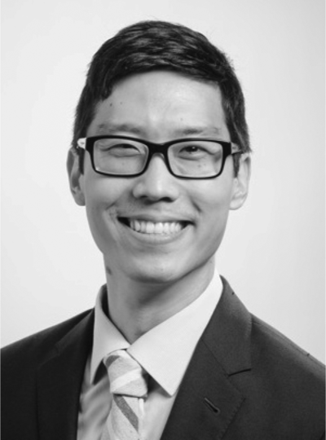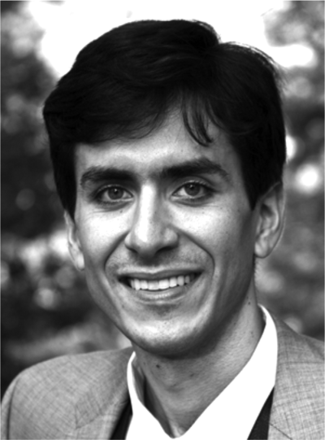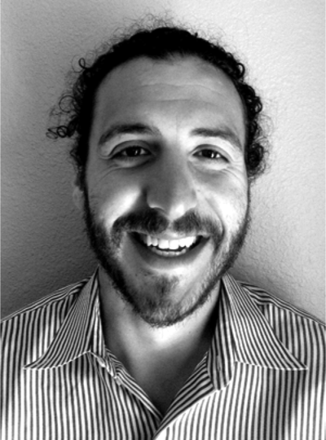The Pisacano Leadership Foundation, the philanthropic arm of the American Board of Family Medicine (ABFM), recently selected its 2013 Pisacano Scholars. These 6 medical students follow in the footsteps of 91 scholar alumni who are practicing physicians and 15 current scholars who are enrolled in family medicine residency programs at medical schools across the country. The Pisacano Leadership Foundation was created in 1990 by the ABFM in tribute to its founder and first executive director, Nicholas J. Pisacano, MD (1924–1990). Each Pisacano Scholar has demonstrated the highest level of leadership, academic achievement, communication skills, community service, and character and integrity.
Brenda Campos-Spitze, a 2013 Pisacano Scholar, is a fourth-year medical student at the University of California, Irvine School of Medicine. She graduated from the University of California, Davis, with a bachelor of science in biological sciences. Brenda completed her masters degree in public health at Johns Hopkins Bloomberg School of Public Health, where she received the Reed-Frost Scholarship, a full-tuition, merit-based scholarship, given in recognition of her outstanding work and future potential in public health.
As an undergraduate, Brenda was a member of the National Society of Collegiate Scholars, recognized for her outstanding academic achievement. She served as a Spanish translator for the Communicare Health Center in Davis and as an employee of the Manor College Office of Continuing Education, where she created a curriculum and taught a Spanish class to medical professionals.
Before medical school, Brenda worked for 2 years as a medical assistant to family physicians in an inner-city primary care clinic in Philadelphia that served the local Puerto Rican community. After beginning medical school, she served as a medical student volunteer on several trips to Valle Redondo, Mexico, and for 2 months at a clinic in a rural village of Kenya between her first and second year of medical school. She is the co-chair of the Referrals Committee for the UC-Irvine Outreach Clinic (UCIOC), the school's free clinic. The UCIOC is dedicated to improving the health of the mostly Spanish-speaking uninsured population in Orange County.
Brenda points to her experience working with the community of Duroville, a slum/trailer park near Palm Springs, as her most rewarding leadership experience. As part of the Duroville Project, she helped formulate a community needs assessment that resulted in more than $200,000 in grant funds to support health programs and renovate the park's community center. The grants also paid for 5 Duroville women to be trained as health promoters for the new diabetes and children's health programs.
As a family physician, Brenda plans to practice patient-centered primary care among California's growing Latino immigrant population. She hopes to partner with these communities in creating a health promoter model to better reach those who are most marginalized. Furthermore, she looks forward to becoming a leader in diabetes and obesity prevention through her work in food and nutrition policy.
Anastasia Coutinho, a 2013 Pisacano Scholar, is a fourth-year medical student at the University of Vermont College of Medicine. She graduated from McGill University in Montreal, Quebec, with a bachelor of science in physiology and completed her master's degree in health sciences in international health at Johns Hopkins Bloomberg School of Public Health.
At McGill, Anastasia received the Alvin Shrier Scholarship, awarded to one physiology student who illustrates outstanding community/extracurricular involvement while also achieving academic excellence. She also received an Undergraduate Research Award from the Natural Sciences and Engineering Research Council of Canada for her high academic ranking. Anastasia used the award to study reproductive endocrinology and ovarian cell development.
While completing her master's degree at Johns Hopkins, Anastasia worked as a research assistant in Baltimore for the Center for Human Nutrition, implementing and evaluating interventions surrounding food purchasing among low-income African American youth and their families. She completed her master's thesis in Bangladesh, where she developed and led a qualitative study consisting of interviews with ethnic minorities in rural Bangladesh regarding pregnancy-related care, including malaria prevention and treatment.
As a medical student, Anastasia has received numerous awards and scholarships, including the American Medical Association Medical Student Leadership Award, the Anne C. Carter Global Health Fellowship, and the New Hampshire-Vermont Schweitzer Fellowship. As a second-year medical student, Anastasia began to develop and implement a student-faculty collaborative clinic for underserved patients in the Burlington, Vermont, community. Anastasia continues toward the establishment of the Health Umbrella of Burlington, which will consist of community health teams including students from multiple health sciences. She has served as a co-leader of the Health Policy Interest Group at the UVM College of Medicine and as President of the American Medical Women's Association UVM Chapter.
Anastasia is currently working with the Johns Hopkins University Institute of International Programs on a large-scale evaluation of a child health program in Burkina Faso, West Africa. The Burkina Faso Ministry of Health has trained more than 3000 community health workers in the northern area of the country to diagnose and treat sick children. As acting program manager of her team, Anastasia's duties include training survey personnel, supervising data collection, and analyzing incoming data from the field. Results from the evaluation, and from similar evaluations in Malawi and Ethiopia, will help inform the global conversation on the potential for community health workers to reduce childhood mortality in low-income settings.
Anastasia is passionate about the integration of family medicine and public health within the context of domestic underserved and global settings. She is excited to work with communities to bring about health empowerment and innovation.
Glenna Martin, a 2013 Pisacano Scholar, is a fourth-year medical student at the University of Washington School of Medicine (UW), where she also just completed her master's degree in public health. She graduated from Skidmore College in Saratoga Springs, New York, with a bachelor of arts in biology. At Skidmore, Glenna was elected to Phi Beta Kappa and received the Thoroughbred Award for Excellence in Leadership. Glenna also volunteered with numerous organizations, including the Special Olympics, and as a tutor for children with special needs.
After graduation from Skidmore, Glenna spent the summer in Costa Rica, volunteering with 2 local health clinics in San Jose and Monteverde. Her work included assisting in various medical duties, organizing and carrying out activities for children on school vacation, and designing a public health project investigating the sexual health knowledge of women between the ages of 20 to 30 years.
Glenna has received numerous awards as a medical student, including the American Academy of Family Physician's Tomorrow's Leader Award and election to Alpha Omega Alpha and the Gold Humanism Honor Society. Last year she was the co-leader of The Differential, a student led, case-based, morning report style teaching session for first- and second-year medical students. Glenna is a member of the Health Equity Circle, a student group that addresses health disparities, and the UW Curriculum Renewal Committee on Health Equity, and she co-chairs the Washington State Medical Association Health Equity Task Force. She also helped organize Sexpertise Week, now expanded to Sexpertise Month, which promotes a more positive, open, healthy, and safe sex culture.
Glenna is participating in UW's Underserved Pathway and Hispanic Health Pathway, as well as the Global Health Pathway, and she has volunteered with a number of organizations including a downtown women's shelter, a diagnosis and referral center in a transitional housing unit for individuals who were previously homeless, and a diagnosis and referral clinic that caters to patients who are Spanish-speaking immigrants. Glenna received the UW School of Medicine Service Award in 2011, 2012, and 2013 and the SPARX/CHAP Award for outstanding volunteer activities in 2010.
Glenna is thrilled to continue pursuing her dream of becoming a family doctor in an underserved area and working as part of a team. In and out of the clinic she also hopes to participate in community activism, public health promotion, medical education, human rights work, and the conscious, conscientious use of health to promote human dignity and social justice.
Brian Park, a 2013 Pisacano Scholar, is a fourth-year medical student at the University of Minnesota Medical School. He graduated Cum Laude from the University of Minnesota–Twin Cities with a bachelor of arts in psychology and recently completed his master's of public health at the University of Minnesota School of Public Health. As an undergraduate, Brian was named to the Dean's List each year and received the President's Distinguished Student Scholar Award each year. During this time, Brian also worked as a research assistant at the University of Minnesota's Department of Family Medicine and Community Health. He was involved in several research trials and helped develop the electronic Primary Care Research Network, which allows family medicine institutions to exchange research and strategies.
Before entering medical school, Brian worked for the Naomi Berrie Diabetes Center at Columbia University. He recognizes this period as one of his most formative experiences in partnering with urban underserved communities and in confirming his desire to work with underserved patients and families.
Returning to Minnesota for medical school, Brian focused his community service projects on advocating for low-income populations. He partnered with local organizations to spearhead a university-wide letter writing campaign and rally at the Minnesota State Capitol against a proposal to cut the safety-net health insurance for the state's most impoverished citizens. During the summer following his first year in medical school, Brian received an Arnold P. Gold research fellowship to help develop homeless respite care facilities in Minneapolis.
Brian was 1 of 2 students selected to participate in the Metropolitan Physician Associate Program (MetroPAP), a 9-month community-based longitudinal integrated clerkship program during the third year of medical school. He used his MetroPAP experience to develop academic and community service projects and as a locus for his master's thesis, The Role of Patient Centered Medical Homes on Safety-Net Populations. In addition, the stories he encountered during his MetroPAP experience led him to create and host The Waiting Room, a recurring, live medical storytelling event. In recognition of these efforts, Brian has received numerous awards as a medical student, including the Leonard Tow Humanism in Medicine Award and the Mary A. McEvoy Award for Public Engagement and Leadership, each awarded annually to one student. He also was inducted into the Gold Humanism Honor Society.
Following residency, Brian plans to remain in academic family medicine and practice in an urban underserved area. He hopes to creatively engage future generations of family medicine leaders in public health, legislative advocacy, health care systems transformation, and medical humanities.
Max Romano, a 2013 Pisacano Scholar, is a fourth-year medical student at Johns Hopkins University School of Medicine, and he is also completing his master's in public health at Johns Hopkins Bloomberg School of Public Health. He graduated with honors from Stanford University with a bachelor of arts in human biology. At Stanford, Max was a Gold Medal Recipient of the Congressional Award for Youth in Public Service. This award is the US Congress' highest community service award, which Max received for completing more than 1700 hours of community service as an AmeriCorps National Civilian Community Corps member.
While at Stanford, Max spent 4 months in the Bay Islands of Honduras, where he interned at 2 not-for-profit international health clinics. He also served as a National Health Policy Intern with the National Hispanic Medical Association in Washington, DC. While there, Max worked with federal officials and coalitions of health advocates to organize Latino health summits in California and Texas. He also published his undergraduate thesis project in the Archives of Internal Medicine, examining the effects of certain types of electronic health records on the quality of primary care nationwide.
An avid cyclist, Max traveled cross-country from Florida to Washington state with his (now) wife on a tandem bicycle while deciding where to move for medical school, eventually deciding on Baltimore. At Johns Hopkins, Max interned with the Center to Eliminate Cardiovascular Health Disparities, researching cultural perceptions of health disparities within an urban academic primary care network.
Max has been a member of the Governing Board of the Student Outreach Resource Center (SOURCE) at Johns Hopkins for the past 3 years, where he coordinates public service for the Schools of Nursing, Public Health, and Medicine. He is a co-leader of his medical school's Urban Health Interest Group and Family Medicine Interest Group, he sat on the board of the Maryland Academy of Family Physicians Foundation, and he served as the Maryland Student Delegate to the National Congress of Student Members of the American Academy of Family Physicians (AAFP). Recently, Max was appointed to a 1-year term on the AAFP's Commission on Health of the Public and Science. He also was named a Sommer Scholar at the Johns Hopkins Bloomberg School of Public Health, which is a scholarship program to develop the next generation of public health leaders.
As a future family physician, Max looks forward to practicing community-based primary care and preventive medicine. He wants to bring innovative models of primary care delivery to underserved communities and provide coordinated, comprehensive, and compassionate care to his patients.
Chas Salmen, a 2013 Pisacano Scholar, is a fourth-year medical student at the University of California, San Francisco, School of Medicine (UCSF). He graduated with honors from Duke University with a bachelor of arts in English literature. He was awarded a Rhodes Scholarship to pursue graduate studies at Oxford University, where he was awarded the highest distinction on receiving his master's in medical anthropology.
At Duke, Chas was captain of the varsity men's cross country and track and field teams. The cross country team won first place at the Intercollegiate Association of Amateur Athletes of America (IC4A) championships his senior year, and Chas was an individual qualifier in the IC4A track and field championships his junior and senior years. Chas was also the founder and chairman of Peace or Pieces, an Arab-Jewish Student Coalition at Duke. Through his leadership, the group raised more than $20,000 for twin communities in Southern Lebanon and Northern Israel that were linked through this program.
Chas is the founding director of The Organic Health Response (OHR). While in graduate school, he founded this community health organization, which partners with a group of local organic farmers, teachers, and health workers on Mfangano Island in Kenya. Today, OHR has an annual budget of more than $250,000 and is a US-based 501c3 nonprofit and a registered community-based organization in Kenya. Chas directs a team of 12 US-based staff and volunteers and 42 full-time Kenyan staff.
As a medical student, Chas was awarded the UCSF School of Medicine Dean's Yearlong Research Fellowship. This fellowship allowed Chas to spend a year on Mfangano Island, where he conducted an investigation to determine the impact of a micro clinic intervention to improve health outcomes among people living with HIV. He is the senior vice-president of MicroClinic International (MCI), a global nonprofit with programs in Jordan, India, and Appalachia in the United States. As senior vice-president of special projects, Chas directs the MCI-OHR initiative for HIV/AIDS. In 2010, after a one-on-one interview with the then director of google.org, Chas secured a $100,000 catalyst grant to launch the world's first MicroClinic program for HIV/AIDS on Mfangano Island.
Chas looks forward to continuing his clinical training as a rural family physician. He hopes eventually to build a community-based practice in the rural Midwest while continuing to grow clinical services on Mfangano Island, Kenya. Chas and his wife, Jenna Hines, an organic farmer and teacher, are excited to explore new collaborations between family farmers and family doctors to promote healthy families, communities, and ecosystems in both the United States and Kenya.
Notes
Conflict of interest: The author is from the ABFM.












